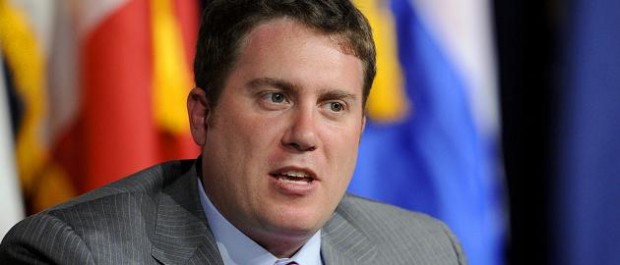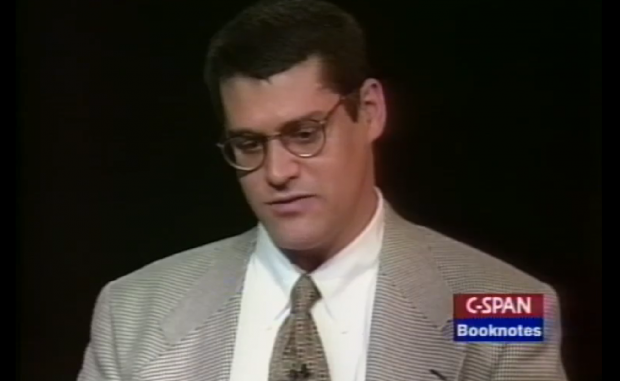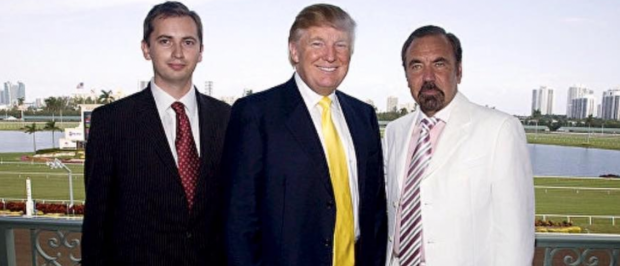A lawsuit filed against BuzzFeed earlier this month could shed light on some details about the “how, why and when” an unsubstantiated 35-page dossier published by the website last month came into being.
The Daily Caller spoke to Brady Cobb, a lawyer for Aleksej Gubarev, the CEO of web hosting company XBT Holdings. Gubarev was named in the dossier as a Russian government agent who coordinated hacks of Democrats during the presidential campaign.
Gubarev strongly denies the charge and is suing BuzzFeed, its editor Ben Smith, and Christopher Steele, the ex-British spy who compiled the dossier, for defamation for including his name in the document.
In a phone interview Cobb said that “a pretty wide net” will be cast in the discovery phase of the suit. That could lead to the revelation of a few key questions about the anti-Donald Trump dossier, including the identities of the donors behind the document, the sources of the information contained in it, and the extent of BuzzFeed’s investigation into the dossier’s claims.
“We want to know how, why and when this story came on board,” Cobb said in an interview on Thursday about his legal strategy for the case.
“We want to know the extent to which they took any journalistic actions to verify the story before just posting it,” he said of BuzzFeed. (RELATED: Russian Tech Exec Sues BuzzFeed For Defamation Over Dossier)

BuzzFeed editor-in-chief Ben Smith (Reuters)
BuzzFeed published the dossier on Jan. 10, just after CNN reported that then-President Obama and President-elect Trump were briefed on some of the allegations laid out in the document.
The dossier includes a number of accusations, the most explosive being that the Russian government is using blackmail material of a sexual nature against Trump and that Trump campaign advisers coordinated with the Kremlin to influence the election.
In a Jan. 11 press conference, Trump called the allegations “phony” and the work of “sick people” who opposed his candidacy.
Gubarev is named at the end of the dossier, which is actually a series of memos compiled by Steele from various sources between June and December.
It states that a Steele source claimed that Gubarev and his companies “had been using botnets and porn traffic to transmit viruses, plant bugs, steal data and conduct ‘altering operations’ against the Democratic Party leadership.”
The dossier also states that Gubarev was recruited as a Russian agent “under duress.”
Cobb said that Gubarev, who has lived in Cyprus for the past 15 years, was shocked to see his name mentioned in the document.
“My client when he saw it was scratching his head,” the attorney told TheDC, noting that Gubarev is not a public figure.
“‘Why am I in this? How am I even a part of this story?'” was Gubarev’s response, Cobb said.
Gubarev’s name and that of his company are now blacked out on the BuzzFeed document. But the website added the redaction and apologized to Gubarev only after the lawsuit was filed.

Fusion GPS founder Glenn Simpson, 1996 C-SPAN interview.
There are a number of questions remaining about the dossier, including the identities of the original patrons for the anti-Trump dirt-digging project and the identity of the sources of the information contained in the document.
The discovery phase in the lawsuit will attempt to reveal that information, said Cobb.
Steele, the ex-spook who compiled the dossier, had been hired by Fusion GPS, a Washington, D.C.-based private intelligence firm.
Fusion GPS, which was founded by former Wall Street Journal reporter Glenn Simpson, was initially hired in Sept. 2015 by an anti-Trump Republican donor. After Trump ascended to the GOP nomination, the Republican donor dropped the project. But a Democratic ally of Hillary Clinton’s emerged to fill the void, and Steele was hired. (RELATED: Oppo Researcher Behind Trump Dossier Linked To Pro-Kremlin Lobbying Effort)
The former spy, who runs the London-based Orbis Business Intelligence, ended up turning his findings over to the FBI and other Western intelligence agencies because, he reportedly claimed, the information he uncovered was so explosive. The dossier also circulated around the Beltway journalism world, but all outlets declined to publish it — until BuzzFeed did so — because the claims in it could not be verified.
BuzzFeed claims it attempted to run down some of the allegations in the dossier but could not confirm any.
The identities of the donors of the dossier have yet to be disclosed. A foreign reporter who was given the dossier by Fusion GPS told TheDC that the firm shared the identity of the Republican donor but refused to do so regarding the identity of the Democratic backer.
The information behind the initial redactions has not been made public and repeated requests to Fusion GPS have gone unanswered.
David Corn, a Mother Jones reporter who saw the dossier before the election and interviewed Steele, declined to share information about the redactions with TheDC.
Paul Wood, a BBC journalist who was provided a copy of the dossier by Fusion GPS, told TheDC that the version he saw already had redactions.
BuzzFeed added all of the redactions contained in its published version, TheDC has learned. BuzzFeed declined to say what information was blacked out and why, but did defend its decision to publish the dossier.
“These reports continue to reaffirm the newsworthiness of the dossier we published last month, the contents of which remain under active investigation by US intelligence, law enforcement, and the media,” said Matt Mittenthal, a spokesman for BuzzFeed.
It is possible that a Belarusian national with Russian business ties named Sergei Millian is listed behind some of the redactions.
If so, that could pose further problems for the veracity of some of the claims in the document given Millian’s business activities in the U.S.
Millian was identified by The Wall Street Journal and ABC News as the source for the two most explosive claims in the dossier. The news outlets reported that they learned of the identity through someone who was familiar with the original document. (RELATED: The Source Of Salacious Claims In Dossier Has Been Identified)

Sergei Millian (left); Donald Trump (center); Jorge Perez (right), in 2007. (via Facebook)
ABC reported that Millian, whose real name is Siarhei Kukuts and sometimes goes by Sergio, may have “unwittingly” provided the information attached to his name in the dossier to a source of Steele’s.
Corn, the Mother Jones reporter who interviewed Steele, published an article several days before Millian was named encouraging federal investigators to interview him.
During the campaign, Millian, who runs a small trade group called the Russian-American Chamber of Commerce, claimed in several interviews to have close business connections to Trump. He said he helped broker real estate deals between Trump and Russian nationals. He also claimed to have ties to the Kremlin.
But in an interview with TheDC last month, Michael Cohen, Trump’s personal attorney, called Millian “a phony” who falsely portrayed himself as a close associate of Trump’s. He also said that he has never met Millian and only talked to him twice.
Cohen was named in the dossier as a Trump adviser who met with Russian government officials in Prague in August to discuss ways to influence the election. He was also named in the same paragraph that identified Gubarev.
But Cohen strongly denied the accusations and provided evidence he was in the U.S. at the time he was allegedly in Prague. A U.S. government official also told CNN’s Jake Tapper that a different Michael Cohen is believed to have met in Prague.
Millian has issued vague denials regarding the dossier, and it is entirely possible that someone falsely identified him to Steele as a source for the salacious Trump claims. But Millian has ignored numerous requests for an interview. He did agree to talk to TheDC at one point but did not follow through with an interview.
CNN has reported that federal investigators have corroborated some parts of the dossier, but not the most salacious sections.
Gubarev’s lawsuit can potentially help corroborate or disprove others.


